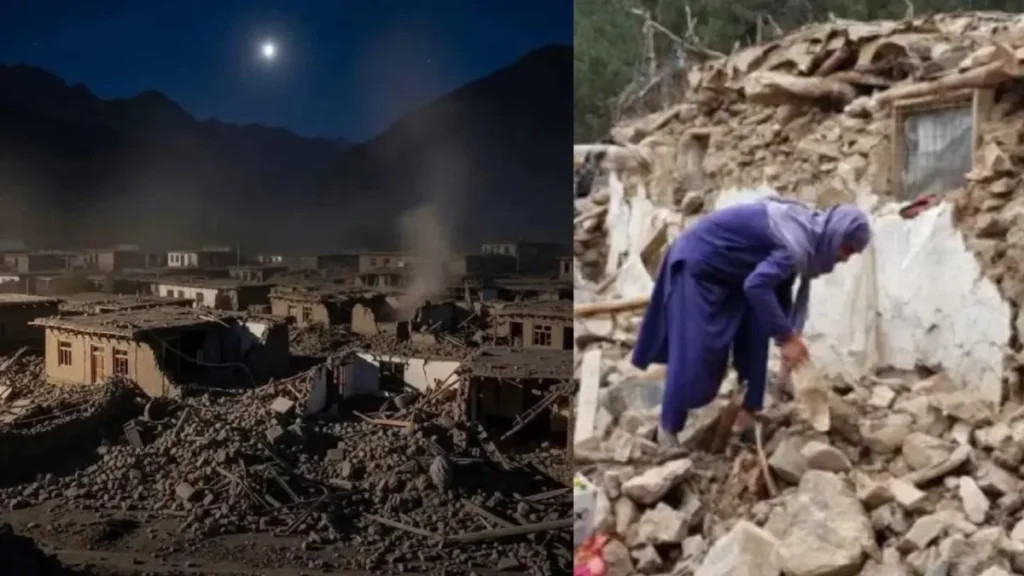Back-to-back quakes devastate Afghanistan. Over 1,400 dead and 3,000 injured as fragile mud houses collapse. India steps in with food and medical supplies.
Afghanistan has been shaken to its core by a series of devastating earthquakes, leaving behind a grim trail of death and destruction. The initial 6.3 magnitude quake struck near Jalalabad, toppling fragile mud homes across Kunar, Nangarhar, Laghman, and Nuristan provinces. In a single night, Kunar alone reported more than 1,400 deaths, while over 3,000 injured people are battling for survival in hospitals.
Also Read:Bigg Boss Kannada 12 promo out! Check here as Kichcha Sudeep sets the stage
Images from the ground reveal collapsed houses, shattered infrastructure, and grief-stricken families digging through rubble. Taliban spokesperson Zabihullah Mujahid confirmed the rising toll, warning that the number may climb further as rescue efforts continue.
Experts note that Afghanistan’s reliance on poorly built mud houses amplified the scale of the disaster. Without structural strength, even moderate tremors cause mass casualties, making rural communities extremely vulnerable.
Also Read:Ananya Bhat case twist: Sujatha Bhat gets Bigg Boss Kannada Season 12 offer?
To add to the despair, the southern region was struck again today by a 5.5 magnitude tremor. Though no fresh casualties have been reported yet, recurring shocks have left citizens traumatized and homeless.
Amid the humanitarian crisis, India has extended a helping hand by sending tonnes of emergency food supplies and critical medical kits to Kabul, later transported to quake-hit Kunar. With international sanctions cutting aid since 2021, Afghanistan’s fragile economy and strained healthcare system are collapsing under pressure.
Also Read:BBMP now a memory: GBA takes charge from today with 5 new city corporations
/filters:format(webp)/newsfirstprime/media/media_files/2025/09/03/afghanistan_earthquake_1-2025-09-03-08-13-30-2025-09-03-09-39-21.webp)
Also Read:Bengaluru’s toxic air steals over two years of life expectancy
This is the third major earthquake since the Taliban’s takeover, raising urgent calls for the global community to step in on humanitarian grounds. For millions of Afghans, survival now depends on swift international assistance.

